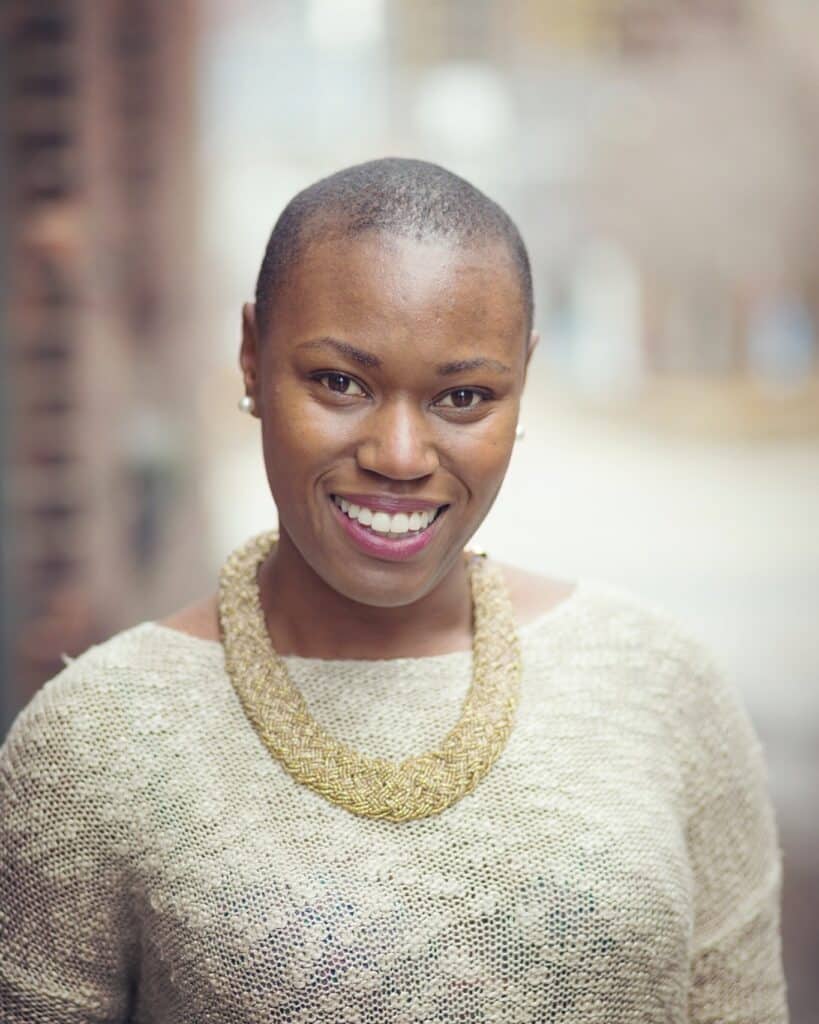A prominent community leader, Camara Chambers brings more than a decade of international experience in management, strategy, and community engagement to her role as the Senior Manager of Career Education at Ryerson University’s Career and Co-op Centre. Camara earned a law degree with honours from the University of Liverpool and honed her community-building skills in the charitable sector in England and Canada, eventually becoming the Executive Director of Canada’s largest volunteer centre. Camara was chosen as one of 100 Black Women To Watch in 2019, is a CivicAction 2018 DiverseCity Fellow and was recognized as a national leader in the Canadian nonprofit landscape in The Philanthropist.
Tell us about your first job and early-career experiences.
I started working as soon I was legally able to. My parents were strict and firmly believed in my siblings and me making our own money. I grew up in London, England and had a paper round when I was 13. Imagine finishing your school day, and heading out at 7pm in the cold, rainy winter nights, delivering heavy newspapers to your neighbours’ doors, and only being paid a few pounds a week! It was grueling but it taught me resilience at a young age. When I turned 16 and was legally able to apply for more formal roles, I snagged a role at a fancy grocery store. It wasn’t glamorous though as I was assigned to the meat and fish counter. I was taught all the skills a butcher and fishmonger should know. I worked there for two years before moving to north-west England to go to university. To this day, I can still gut a fish surprisingly easily!
You have been working in Career Education and actively advising and advocating for youth employment. How did your career path lead you to move into this role?
There’s one thing all my past roles have had in common – helping people. I’ve come to realize that I’m motivated by roles where I get to improve other’s lives…even just a little bit. My career path has been a windy one. When I finished my law degree, I dabbled in entry-level roles in the government and as a recruiter, before realizing that I had a passion for work that created social change. I got my foot in the door of a national LGBT advocacy organization and built my skills there before moving across the pond to Toronto. I eventually landed a role working for Volunteer Toronto, a charity that connects volunteers to the causes that need them and stayed with the organization for seven years, learning new skills and taking on increasingly senior leadership roles. While at Volunteer Toronto, I created Toronto’s largest volunteer event, the Youth Expo, with a group of young people who recognized the need for easier access to volunteer opportunities. The one-off event turned into an annual one and was attended by 1,300+ young people and 100+ non-profits. When the Senior Manager of Career Education role at Ryerson came up, I was drawn to it because I knew it would be a unique opportunity to use the many skills I’d learned along the way to support the career preparation of thousands of young people.
What is the most rewarding part of your work? What is the most challenging?
I love that in my role I am constantly learning. Working at Ryerson University, I have easy access to resources, events, and people who I can learn from. Just yesterday I attended an event on trans inclusion in the workplace and left knowing what I can do as a leader to support trans and non-binary staff. Within the Career and Co-op Centre, I lead a team of people who have come from a wide variety of professional backgrounds – human resources, employment counselling, teaching, auditing, media – and so everyone contributes something unique to our work. Despite our diverse experiences, one thing that never wavers is our passion and commitment to students’ professional development.
The most challenging thing is bringing a sense of cohesion when building a campus-wide approach to preparing students for the world of work. In such a large, complex organization like Ryerson, there are many stakeholders, and a crucial part of my role is ensuring career preparation is part of the student experience and that we are all working together to support students so they are ready by the time they graduate. I’ve learned the importance of building trust when working with others and showing a high level of flexibility to ensure we’re all pulling in the same direction to meet the same goals.
You have been a passionate advocate for volunteerism. Why is it important for students to volunteer their time and what can they gain in the process beyond their resumes?
I find it interesting that volunteering is so often overlooked by students and people of all ages. There’s always the excuse that one does not have time, but spending a few hours a month can make such a significant difference to your community and to your own life. When I first volunteered, I did so through a program I was part of in high school. I chose to help out in a charity thrift store and made the most of the opportunity by shadowing the manager and learning new skills. That role helped me land future part-time roles while I was at school and university as I could speak confidently about my volunteer experience working with customers, handling cash, managing stock, and problem-solving.
Nowadays I volunteer in roles that help me to use skills I don’t get to use on a daily basis for causes I am passionate about. I volunteer for a local hiking club leading hikes and exposing people to the joys of nature. It’s been an opportunity for me to meet new people, build my leadership skills, and show people how easy and fun hiking can be. My biggest tip when it comes to volunteering is you have to find a volunteer role you love. There’s no point giving your time if you’re doing something you find tedious or unenjoyable. Hone into things you love doing such as working with people, caring for animals, advancing racial equality, creating social media content, using your writing skills, and then look for volunteer opportunities that excite you.
What suggestions do you have for early-career women of colour as they navigate their careers during the pandemic?
Pay attention to where there are opportunities in the labour market. As you think about what you want to do next, keep an eye on which roles in your sector are being heavily advertised for and on the flip side, which ones are few and far between. Regardless of the economy and the changes that the labour market is going through, there are usually opportunities and roles that are not seen as “sexy” enough for most applicants so have fewer candidates apply for them and are easier to secure. These roles can be an opportunity for you to learn a new skill and add another tool to your toolbox if you are able to spot them and are willing to be flexible and brave enough to apply for them.
Know yourself. In times where competition for jobs is high, it’s important to really know yourself well – what are your strengths? What are your weaknesses? What skills do you have that will make you stand out from the crowd? How well do you interview? How do you come across when you present? Seek feedback from different people to build up your understanding of your skills and other’s perceptions of you. There may well be small things that you are doing that may be inhibiting your chances of success.
You were recognized as one of Top 100 Black women to watch in Canada last year. Tell us what this recognition means to you.
It was very exciting! I only recently became a Canadian so it felt great to be recognized in this new country I now call home. It was wonderful to see such a wide range of women from across the country be recognized alongside me too.
How can leaders more effectively invest in the potential of early-career BIWoC women?
Leaders can invest more by paying attention to the individual experiences of young BIWoC women. Find out what they are interested in, where they want their careers to go, and look for opportunities to expose them to areas that can help their development. Recognize that while you may be committed to their growth, others may not be and could be underestimating their potential. So look out for times when they are given work that is not appropriate for their role, spoken over in meetings, or not informed about important professional development opportunities. And ask what they need to feel supported in their role. Everyone is different and likes to be supported in a way that works for them. Be sure to ask whether they would like feedback and how they would like it. Coaching through feedback can be incredibly effective and a way of building the young women’s self-awareness at the early stages of their career, though you’ll want to make sure she is comfortable with it before you start freely offering it.
How do you invest in your own potential as a Black woman?
I invest in my potential by constantly thinking about the future. I learned early in my career when working as a recruiter, that it’s important to always have a Plan B. I met a woman who had been working for a global bank for 25 years in a very senior role. But when the economy slowed she was laid off. I met her a few days later to discuss job opportunities and help her write her first resume in two decades. She was still in shock and reeling from the unexpectedness of her company’s decision. Her advice about always thinking one step and having a Plan B has stuck with me. For me, this means careful financial planning and seeing professional development as a lifelong journey. I make an active effort to constantly be learning, building new skills, and understanding my strengths.
Another way I invest in my potential is I make sure to look for role models across every industry – women who have shown greatness in their achievements and resilience – who can inspire me to be more than I am today.
At AHF we believe in celebrating and amplifying those who have paid it forward in our lives and careers. Who has been one of your greatest mentors, allies or sponsors and why?
I have had many mentors during my career and one that stands out to me is Jonathan Finney, my supervisor while working at Stonewall, a charity that campaigns for the equality of LGBT people across Britain. He was a parliamentary and policy whizz and through him I learnt a lot about how the UK parliamentary system works, how laws can be changed, and the importance of strong government relationships. And he was my first ally. A situation occurred where I had been working at a number of the organization’s events and had experienced microaggressions from members of the public. I was unsure how to handle it and was keen to still support the events but was uncomfortable with how I was being treated. I confided in him about what was happening and he stepped up and advocated for me. And he coached me when I wanted to go for a promotion and apply for a role that had more responsibility. His humble, quiet leadership taught me that there are ways to lead without being the loudest voice in the room, and that there is power in bringing a sense of calm to challenging situations.



